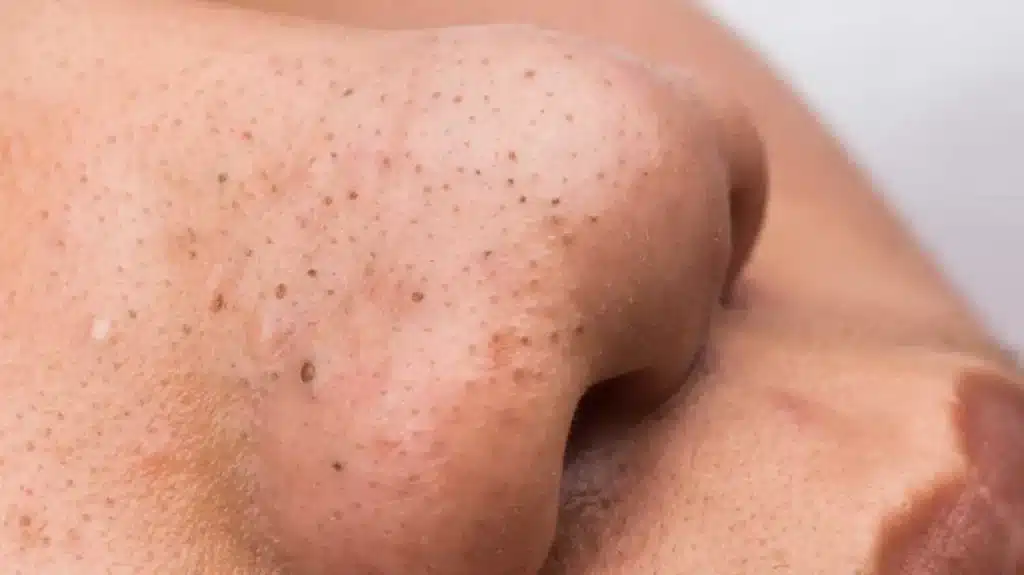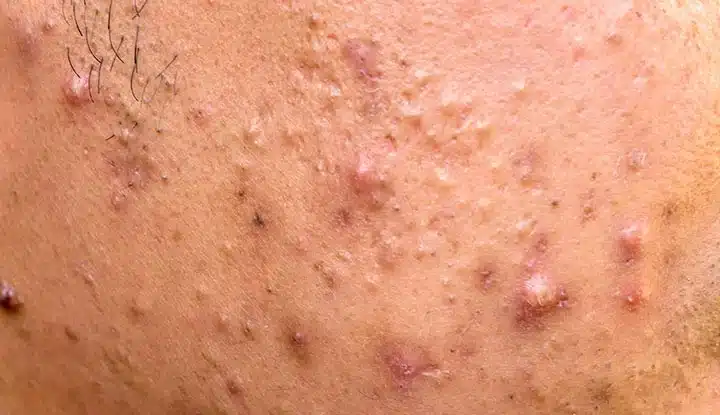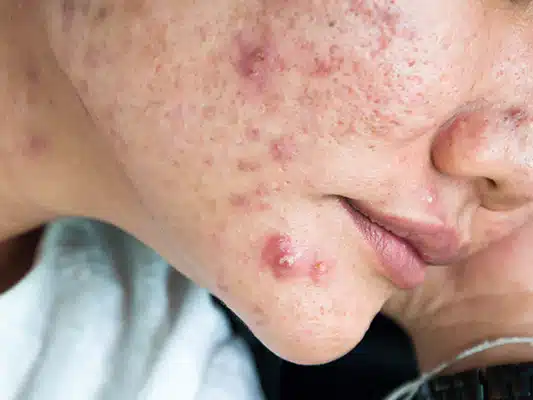What is it?
We all think of the dramatic movie scenes whenever a pimple pops up–zooming in, making the craziest facial expression, feeling fearful and horrified. Acne tends to take a toll on one’s confidence, which we never like to see. We want our patients to always feel confident, comfortable, and content in their own skin. Whether it be one pimple or an entire face of cystic acne, whether the patient is a teenager or a grown adult, we know acne can affect us at all stages of life in varying degrees, but it’s extremely common. Let’s talk about it.
Acne is a formation of bacteria on the skin, which displays itself in many different forms. There’s the blemish, blackheads and whiteheads, acne nodules, and cysts. Blackheads appear when the skin becomes clogged with excess oil and bacteria. When the skin remains open, this is a blackhead. Sometimes the pores will clog up over these bacteria, forming a whitehead. The best way to treat these is with the use of a retinoid, such as Tretinoin, and a wash such as a benzoyl peroxide wash.
Papules, or small pimples, form when excess dead skin cells, acne and bacteria push deeper into the skin, causing inflammation and redness. They usually feel stiffer, and when scattered across the face, can provide a very rough and bumpy texture to the skin. Washing twice daily and having a consistent skin routine can help clear this. Washes like benzoyl peroxide or salicylic acid are especially helpful, along with other topical prescription medications by your dermatologist or dermatology PA.
Pustules are similar to papules, except they include a yellow fluid. The same washes above can help this type of acne, and it’s extremely important to avoid the temptation to pop them. Popping these can spread the bacteria and puss, creating more pimples. This also may require a short course of antibiotic pills in addition to topical medication.
The deepest form of acne is cystic acne. These blemishes can be the most difficult to treat and require the help of a dermatologist. They tend to be the most impactful and cause permanent scarring in the skin when healing. A dermatologist or dermatology Physician’s Assistant can prescribe needed medication to control this acne and aim to cure it. Cystic acne may to be more hormonal rather than bacterial, so it may be evaluated by hormonal testing.
Why do I have acne? What can I do?
Contributing factors to bacterial acne can include diet choices, topical products (such as irritating ingredients or makeup products as well as leaving these products on the skin for too long), stress, physical activity, and hygiene. Routinely washing the skin may not always entirely eliminate acne, but it can clear some acne and prevent future breakouts. Exfoliation treatments can also be beneficial to deep cleaning the skin, removing dead skin cell build up, and clearing the pores (such as Dermaplaning or Diamond Glow), but it’s always recommended to consult with a provider on these first. Ensuring the skin is cleansed after working out, playing sports, or spending time in the heat is also helpful, as sweat can get trapped in the pores.
While teenage acne tends to be most common, children and adults can still get acne as well. A healthy skincare regimen can help, but it’s always ideal to seek care with a dermatologist or dermatologist Physician Assistant. These professionals can guide you in the right direction to the best products, as not everything works the same for everyone. Factors will vary such as your skin type (oily, normal, dry), allergies, irritations, medication list, and severity or degree of acne present. Our providers here at Edgebrook Dermatology are always happy to get patients the care they need.
You can schedule a skin exam with us at (815) 229-9333 ext. 1 today. Repair, Restore, Revitalize.



